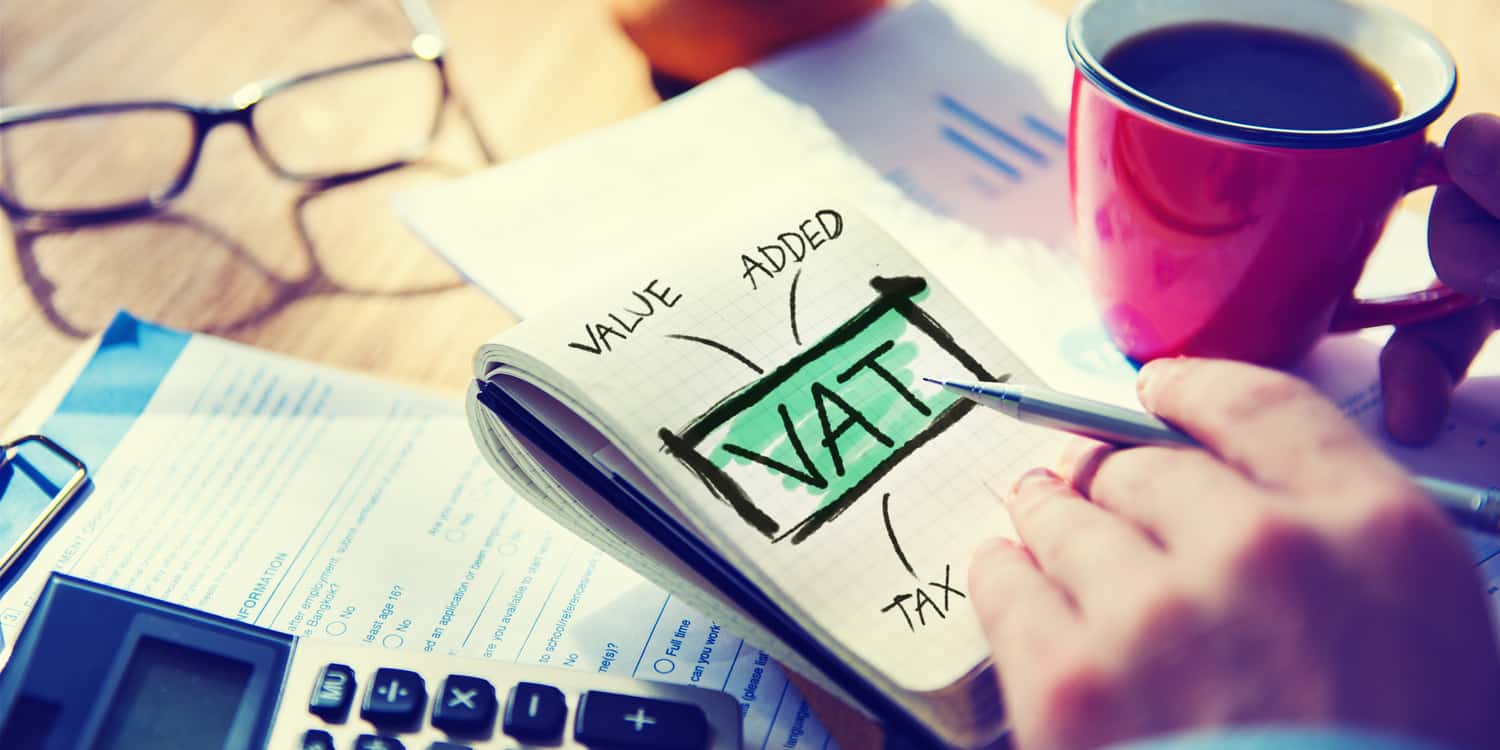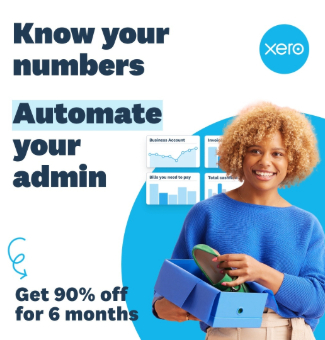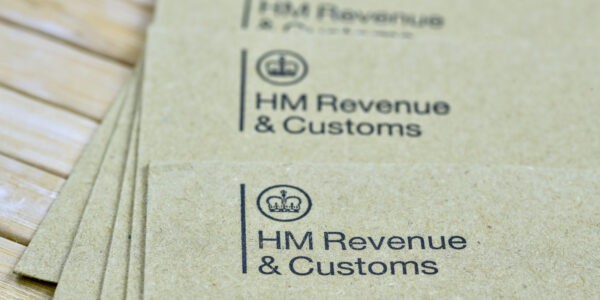Voluntary VAT registration is available to any business that sells taxable supplies and whose turnover is below the compulsory VAT registration threshold of £90,000. But why would you want to register for VAT and pay tax if you don’t have to? Because there are many potential benefits to be had.
In this post, we explain the difference between compulsory and voluntary VAT registration in the UK, how to register with HMRC for VAT online, and the reasons why VAT registration could be advantageous to your small business.
Key takeaways
- Voluntary VAT registration enhances your business credibility and opens up opportunities with VAT-registered clients and suppliers.
- Registering for VAT allows you to reclaim VAT on business purchases, improving overall cash flow.
- Weigh the administrative burden against benefits before deciding on voluntary VAT registration for your small business.
What is voluntary VAT registration?
Voluntary VAT registration gives businesses the right to register for VAT if their turnover is below the compulsory VAT registration threshold of £90,000. This enables small businesses to enjoy the same benefits as their larger competitors.
In the UK, VAT registration is only a legal requirement if any of the following conditions are met:
- your VAT-taxable turnover is expected to exceed £90,000 in the next 30 days
- your VAT-taxable turnover is greater than £90,000 for the last 12 months
- you sell VAT-exempt goods or services but purchase goods for more than £90,000 from a VAT-registered supplier in Northern Ireland or an EU Member State
- neither you nor your business is based in the UK but you supply goods and services to the UK
If none of these apply to your business, you can register for VAT voluntarily. Unless everything that you sell is VAT exempt.
When you register for VAT, you will receive a VAT registration number. You can then charge VAT on the goods and services you sell and reclaim the VAT you pay on certain business-related purchases.
Who can register for VAT?
Any type of business can register for VAT, including:
- public limited companies (PLCs)
- private companies limited by shares or guarantee (LTD)
- limited liability partnerships (LLPs)
- corporate groups and business divisions
- unlimited companies
- limited partnerships (LPs)
- general business partnerships
- sole traders
- charities and non-profits, including clubs and associations
VAT registration has nothing to do with the legal structure of your business. It is based on turnover and/or whether the business sells taxable supplies.
No VAT is charged on goods or services that are VAT exempt or those outside the scope of the UK VAT system. If all of your business supplies are exempt, you cannot register for VAT.
Benefits of being VAT registered
Choosing to register for VAT and pay tax when you don’t have to may seem counterintuitive and bad for your bottom line. However, becoming VAT registered is extremely beneficial to many small businesses.
By registering for VAT, you will be able to:
- display a VAT number on your website, letters and emails, invoices, and receipts
- reclaim VAT that you pay on the goods and services you buy through your business, including certain items purchased up to 4 years before the date of registration
- boost your corporate image and make your business appear bigger
- open doors to new business relationships and opportunities with lenders, suppliers, and clients who deal exclusively with VAT-registered businesses
- improve your cashflow
- gain better insight into your business activities and performance from your VAT records and returns
- avoid the risk of unknowingly going over the VAT threshold and receiving a late VAT registration penalty from HMRC
The significance of these benefits will, of course, depend on your business and the taxable supplies you make. Tax efficiency and improving competitive positioning are the most notable advantages for the majority of small businesses considering voluntary VAT registration.
Are there any disadvantages of VAT registration?
Whilst there are clearly many benefits to be gained from VAT registration, there are a few disadvantages to be aware of.
You will have more administration to deal with, which means that you may have to spend more time and/or money on bookkeeping and accounting.
Moreover, if you sell products or services to customers who are not VAT registered, raising your prices to account for VAT could make your business less appealing.
Weighing up the pros and cons beforehand is an important consideration to ensure that VAT registration is the best decision for your small business,
Can I cancel my VAT registration if I change my mind?
You can cancel your VAT registration online or by post if your VAT taxable turnover is below the deregistration threshold of £88,000.
If you stop trading altogether, stop making VAT-taxable supplies, or join a VAT group, you are legally required to cancel your VAT registration within 30 days.
How to register for VAT voluntarily
The majority of businesses can register for VAT with HMRC online. The process and requirements are exactly the same for compulsory and voluntary registration.
To register for VAT, you will need to provide details about your business, including:
- where the business is based and operates from
- business/company name and address
- the legal structure (e.g. sole trader, limited company)
- Unique Taxpayer Reference (UTR)
- turnover
- business activities
- bank account details
- name and contact details of the applicant (business owner/partner/director)
When you register for VAT online, you will create a VAT online account (sometimes referred to as a ‘Government Gateway account’) at the same time. You will use this to file your quarterly VAT Returns with HMRC.
Within approximately 30 working days of registration, you should receive a VAT registration certificate (though sometimes it takes longer). This will contain your VAT number.
If you register online, your certificate will be sent to your VAT online account. If you register by post or through an agent, it will be posted to your business address or registered office.
At Quality Company Formations, we provide a VAT Registration Service, which is available to limited companies and limited liability partnerships with turnover above or below the VAT registration threshold.
Do I need to use Making Tax Digital for VAT?
Making Tax Digital (MTD) is an HMRC initiative designed to simplify tax accounting for individuals and businesses.
Since 1 April 2022, all VAT-registered businesses are legally required to sign up for Making Tax Digital for VAT and use compatible accounting software to:
- keep digital accounting records
- create VAT Returns
- submit VAT Returns to HMRC
Prior to this date, businesses who voluntarily registered for VAT were exempt from Making Tax Digital.
Need help with your VAT registration?
We hope that this post has shed some light on voluntary VAT registration, the benefits it can offer to your small business, and how to register for VAT online.
If you have any questions about becoming VAT registered or would like to know more about our VAT Registration Service, please contact our team of experts on 020 3908 0044 or leave a comment below.














Join The Discussion
Comments (2)
This was an excellent read about voluntary VAT registration work will keep in mind and will implement on my Small business accounting UK
Many thanks for your comment! We’re thrilled you found the post useful.
Your input is always welcome and appreciated.
Kind regards,
The Quality Formations Team